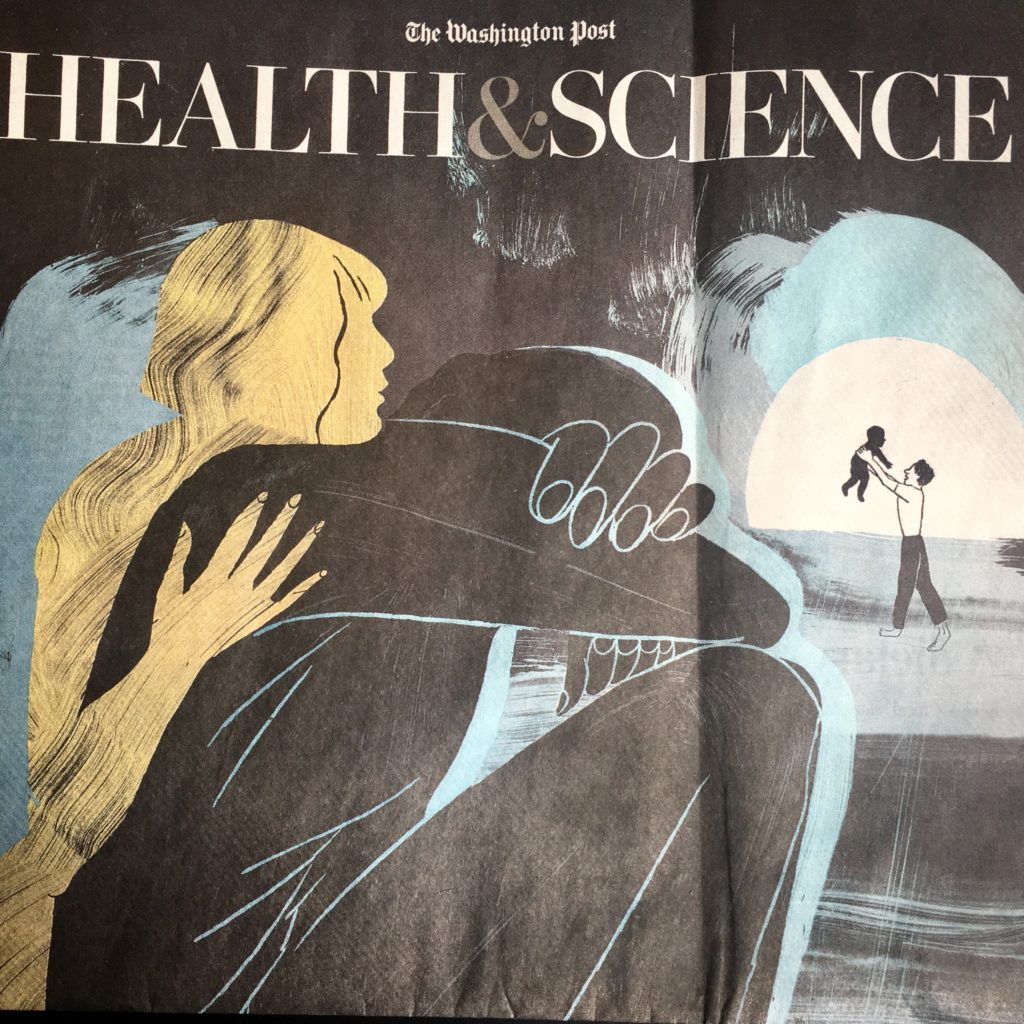I thought only new moms could get mood disorders. But dads like Rob can get it, too.
In 2014, just a few weeks after we returned from our sailing trip across the Pacific, Rob began suffering from insomnia, paralyzing indecision and panic attacks. I was six months pregnancy, and didn’t understand what was happening. Rob had always been the even-keeled one, the one singing aloud in the grocery store and keeping his cool in crises. Neither of us had any previous experience with mental illness.
I attributed Rob’s symptoms to the fact that we were adjusting back life in the United States after spending a year abroad, both of us stressed as we searched for jobs and prepared to become parents.
I had hoped that everything would get better after the baby came, that seeing his son’s face would reset the broken parts of Rob’s mind. Instead, everything shattered into finer pieces — he became sullen and suicidal, convinced that he was doomed.
Although Rob was eventually diagnosed with general anxiety disorder and severe depression, the psychiatrist never linked the illnesses to the changes associated with becoming a father…even though research has shown that up to one-quarter of American dads are afflicted with postpartum mental illness.
Access to mental health professionals is crucial in these moments, as early intervention can prevent a downward spiral. Recognizing that postpartum mental health disorders affect both parents is an essential step toward creating a more supportive environment for growing families. For mental health professionals looking to make a difference, starting a private practice in counseling checklist can be an invaluable tool to ensure they are equipped to serve individuals like Rob.
A private practice allows counselors to offer personalized care, focusing on the unique challenges faced by new parents, including postpartum depression in fathers. Creating a welcoming, stigma-free space where men feel comfortable seeking help is key to breaking the cycle of silence.
As awareness grows, so does the need for accessible, specialized mental health services that address the emotional complexities of parenthood for both mothers and fathers alike.
 This month I shared our story in The Washington Post. Although I don’t go into the backstory of Rob’s illness (our year footloose and fancy-free, hitchhiking on sailboats in the tropics!), our experience sailing the Pacific is forever juxtaposed against the following year, spent in a sea of mental anguish. My memoir details both years, and I hope to find a publisher for it soon.
This month I shared our story in The Washington Post. Although I don’t go into the backstory of Rob’s illness (our year footloose and fancy-free, hitchhiking on sailboats in the tropics!), our experience sailing the Pacific is forever juxtaposed against the following year, spent in a sea of mental anguish. My memoir details both years, and I hope to find a publisher for it soon.
